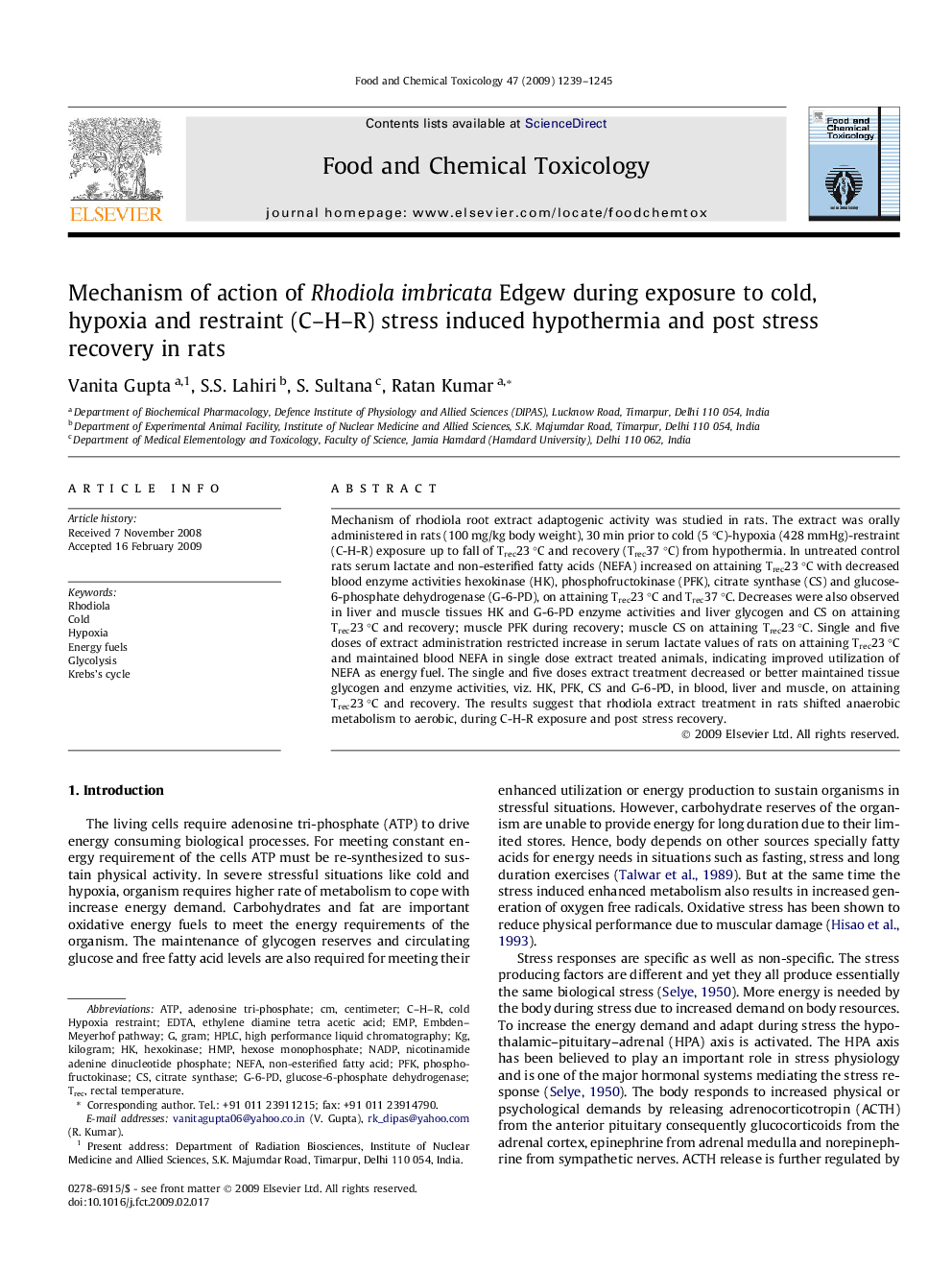| Article ID | Journal | Published Year | Pages | File Type |
|---|---|---|---|---|
| 5854397 | Food and Chemical Toxicology | 2009 | 7 Pages |
Mechanism of rhodiola root extract adaptogenic activity was studied in rats. The extract was orally administered in rats (100 mg/kg body weight), 30 min prior to cold (5 °C)-hypoxia (428 mmHg)-restraint (C-H-R) exposure up to fall of Trec23 °C and recovery (Trec37 °C) from hypothermia. In untreated control rats serum lactate and non-esterified fatty acids (NEFA) increased on attaining Trec23 °C with decreased blood enzyme activities hexokinase (HK), phosphofructokinase (PFK), citrate synthase (CS) and glucose-6-phosphate dehydrogenase (G-6-PD), on attaining Trec23 °C and Trec37 °C. Decreases were also observed in liver and muscle tissues HK and G-6-PD enzyme activities and liver glycogen and CS on attaining Trec23 °C and recovery; muscle PFK during recovery; muscle CS on attaining Trec23 °C. Single and five doses of extract administration restricted increase in serum lactate values of rats on attaining Trec23 °C and maintained blood NEFA in single dose extract treated animals, indicating improved utilization of NEFA as energy fuel. The single and five doses extract treatment decreased or better maintained tissue glycogen and enzyme activities, viz. HK, PFK, CS and G-6-PD, in blood, liver and muscle, on attaining Trec23 °C and recovery. The results suggest that rhodiola extract treatment in rats shifted anaerobic metabolism to aerobic, during C-H-R exposure and post stress recovery.
